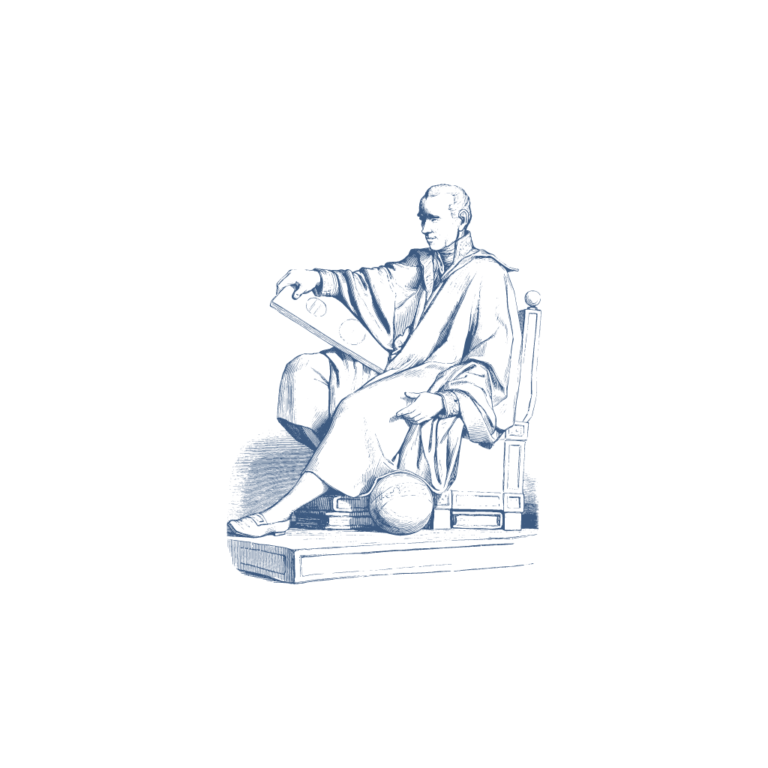
Famous legal professionals from medieval and ancient history
08 October 2022
The field of law has a long and distinguished history, dating back to medieval and ancient times. Throughout the centuries, legal professionals have played an important role in society. Many legal professionals from history are well-known for their wisdom and eloquence, and their work still influences the legal profession today. Some famous legal professionals from medieval and ancient history include:
1) Marcus Tullius Cicero
Cicero was a Roman statesman, a lawyer, a scholar, and an author. Cicero was the youngest person to attain the highest rank of consul without coming from a political family. Cicero wrote philosophical works such as On the Republic, On Invention, and On the Orator. Additionally, he delivered many speeches and left behind letters that have allowed the modern world to gain insight into the culture and politics of Cicero’s era. In his most well-known case, he had to defend a man who was charged with killing his father (parricide). He secured an acquittal for the accused by persuading the jury that the true murderers were closely connected to the highest public officials in Rome. He put himself in grave danger while defending what he believed to be right and safeguarding the interests of the innocent. While Cicero supported the rule of law, he contended that the law alone is insufficient to create a just society. Liberty is also necessary.
2) Bartolus de Saxoferrato
He was a prominent lawyer and professor of law. Bartolus studied law at the universities of Perugia and Bologna. In 1339, he was called to the chair of civil law in Pisa, where he taught until being called to Perugia in 1343. He used the Corpus juris civilis (translated as “Body of Civil Law”), as foundation to derive at legal principles that could be used to solve contemporary problems in 14th-century Europe. He also wrote several extremely influential legal doctrines in his time, especially the ones on the governmental authority of city-states and the rights of individuals and corporate bodies within them, which provided for a strong intellectual foundation for the development of nation states.
3) Thomas More
Thomas More, was an English lawyer, judge, social philosopher, author, and statesman. He studied the common law, and in February 1496, he was admitted to Lincoln’s Inn, one of the four legal societies preparing for admission to the bar. In 1501, Thomas More became a barrister. After that, first, he reformed the practice in Chancery. Second, he created the idea that equity would relieve against forfeitures, thereby transforming the ancient bond into a modern obligation and also laying the groundwork for the present day mortgage, with its equity of redemption. And third, he proposed, far in advance of his time, fusion of law and equity in remedial practice, which his native country enjoys today under the Judicature Act of 1873, but actually came into being with the New York Code of Procedure of 1848, and lately has been exemplified in the Federal Rules. Further, Thomas More wrote Utopia in 1516, and coined the word “Utopia,” in reference to an ideal political system.
4) Bartholomew Chassenée
He was a French jurist who practiced law in Autun in 1506. He became crown attorney of the Autun bailliage in 1508, and made his reputation as a criminal lawyer by defending a group of rats who were put on trial for destroying the barley crop of the province. His principal work is the Commentaria in consuetudines ducatus Burgundiae, the first substantial and scientific commentary on French customary law. Due to the work’s extensive coverage of Roman law, it was widely cited in France and abroad and was even used centuries later to help interpret the Code Napoléon. His other works include Catalogus gloriae mundi, an encyclopedic panorama of the author’s knowledge; and the Repertorium consiliorum, which is a collection of legal advice given by him.
5) Clara Shortridge Foltz
Clara Shortridge Foltz was an esteemed lawyer and reformist. She moved to California with her family in 1874, where she became the first female lawyer in the state and also changed the practice that only white men were allowed to practice law by creating the Woman Lawyer’s Bill, which was passed through the state Senate in 1878. She was the epitome of change by becoming the first practising lawyer in the west coast in a time when advocacy wasn’t seen as a profession for women. In 2002, The Criminal Courts Building in downtown Los Angeles was renamed after her, and is now known as the Clara Shortridge Foltz Criminal Justice Center.
6) Belva Ann Bennett Lockwood
She was the first woman to argue before the US Supreme Court, also being the first woman to have entered and be admitted to the US Supreme Court bar. She was first denied entry to the US Supreme Court bar as only men were permitted. Despite the fact that men ruled over the legal profession at the time, she persevered and was a successful lawyer and a woman suffragist. She worked on civil and criminal trials and also taught.
7) Mohandas Karamchand Gandhi
Before he became an internationally recognized advocate of nonviolent resistance, Mahatma Gandhi spent almost 25 years as a lawyer. He became a barrister in England, an advocate in India and finally an attorney in South Africa. Gandhi fought for social justice in South Africa and against apartheid. The experience and skill that he acquired in the course of his practice guided him in fighting his battles with the South African and British governments for securing political, economic and social justice for his fellow-countrymen.
8) Abraham Lincoln
The 16th president of the United States, who led the country through one of the darkest periods in American history, the Civil War, didn’t just have a political career, he was also one of the most prominent lawyers of his time. He had a law firm, Stuart & Lincoln and was a versatile lawyer, representing clients both in criminal and civil matters before he entered politics.
9) Nelson Rolihlahla Mandela
Nelson Mandela was a South African anti-apartheid activist who founded the first black law firm, Mandela & Tambo, in 1952. The two focused on providing legal representation to black Africans who would otherwise have been charged exorbitantly. The legal advice Mandela and Tambo offered was affordable and often free, and their firm became highly sought after as a means for black Africans to access justice. He was a great lawyer whose legal skills even helped him politically when he was elected as the leader of the African National Congress.
Conclusion
The contributions of these historical figures are both significant and inspiring as they were all brilliant legal minds who possessed strong leadership qualities and inspired others with their actions and words. It is crucial to keep in mind that this list is not exhaustive, as there have been several more brilliant lawyers and legal thinkers who have contributed to the evolution of the law throughout history.
Useful Links
(1) Marcus Tullius Cicero
- https://plato.stanford.edu/entries/cicero/
- https://education.nationalgeographic.org/resource/cicero
- https://www.britannica.com/biography/Cicero
- https://fee.org/articles/enemy-of-the-state-friend-of-liberty/
- https://www.history.com/topics/ancient-history/marcus-tullius-cicero
(2) Bartolus de Saxoferrato
- https://amesfoundation.law.harvard.edu/BioBibCanonists/Report_Biobib2.php?record_id=t022
- https://www.britannica.com/biography/Bartolus-of-Saxoferrato
- https://engelsbergideas.com/portraits/bartolus-of-saxoferrato-a-legal-legend-between-two-ages/
(3) Thomas More
- https://plato.stanford.edu/entries/thomas-more/
- https://englishhistory.net/tudor/citizens/sir-thomas-more/
- https://www.britannica.com/biography/Thomas-More-English-humanist-and-statesman
- https://www.biography.com/scholar/thomas-more
(4) Bartholomew Chassenée
- https://bearistotle.substack.com/p/the-trial-of-the-rats-of-autun
- https://www.thevintagenews.com/2019/02/18/rats/?safari=1
(5) Clara Shortridge
- https://www.britannica.com/biography/Clara-Shortridge-Foltz
- https://www.womenhistoryblog.com/2013/09/clara-foltz.html
(6) Belva Ann Lockwood
- https://www.britannica.com/biography/Belva-Ann-Lockwood
- https://kids.britannica.com/students/article/Belva-Ann-Lockwood/315340
- https://www.archives.gov/publications/prologue/2005/spring/belva-lockwood-1.html
- https://awpc.cattcenter.iastate.edu/directory/belva-lockwood/
- https://www.womenofthehall.org/inductee/belva-lockwood/
- https://nwculaw.edu/belva-ann-lockwood-biography
(7) Mohandas Karamchand Gandhi
- https://www.mkgandhi.org/law_lawyers/introduction.htm
- https://academicworks.cuny.edu/cgi/viewcontent.cgi?article=1092&context=si_pubs
(8) Abraham Lincoln
- https://www.battlefields.org/learn/biographies/abraham-lincoln
- https://www.britannica.com/biography/Abraham-Lincoln/Prairie-lawyer
(9) Nelson Rolihlahla Mandela
Editorial Team

Alvina Ali
Content Writer
